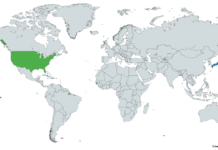
Qantas is responding to a major data breach that affected up to six million customers after cybercriminals accessed a third-party system used by one of its contact centers. The breach, discovered earlier this week, led to unauthorized access to customer names, phone numbers, email addresses, dates of birth, and frequent flyer membership numbers. Credit card details, passwords, and passport information were not stored in the compromised system.
The incident has prompted widespread concern and drawn renewed attention to cybersecurity risks across Australia. Qantas CEO Vanessa Hudson has issued a public apology and confirmed that the airline has begun directly notifying affected customers.
“We understand the concern this causes,” Hudson said. “Our team is focused on providing support, updates, and reinforcing trust by securing our systems against future threats.”
The breach was reportedly the result of a social engineering attack—a method where attackers manipulate people into providing access to secure systems. This technique, often referred to as “vishing” when carried out over the phone, has become increasingly effective, especially as attackers make use of voice-cloning tools and impersonation tactics. Authorities have yet to confirm the group responsible, though experts point to the methods of Scattered Spider, a group known for targeting major companies using similar techniques.
Australia’s privacy regulator and cybercrime experts are urging the public to be on high alert for potential scams in the aftermath. Individuals have been advised not to provide personal details to anyone claiming to be from Qantas via phone or email. The airline emphasized that it will never ask for passwords or sensitive login information.
Qantas has set up dedicated support lines and a webpage to inform customers and provide identity protection resources. Those concerned can call 1800 971 541 within Australia or +61 2 8028 0534 from overseas.
According to cybersecurity specialists, the data stolen may be used in follow-up attacks, such as phishing emails, identity fraud attempts, or account takeovers on other services. Because many people reuse email addresses and use similar personal information across various platforms, hackers may exploit these details to reset passwords or impersonate individuals.
Although Qantas has confirmed that no frequent flyer accounts were directly accessed, experts warn that the inclusion of membership numbers in the stolen data could make these accounts targets in the near future. Customers are encouraged to log in frequently, monitor for suspicious activity, and enable two-factor authentication where available.
The breach has sparked renewed conversation around the need for stronger protections within large organizations. Cybersecurity analysts say that outsourced services and third-party platforms represent an ongoing risk if not rigorously secured. The Australian Prudential Regulation Authority has also highlighted broader concerns about the financial sector’s vulnerability to similar attacks, especially as interconnectivity between industries grows.
In the meantime, Qantas is working with cybersecurity firms and government agencies to determine exactly what data was accessed, how the breach occurred, and how to avoid future compromises. The airline’s response will likely shape customer confidence and industry practices in the months ahead.
Image is licensed under the Creative Commons Attribution-Share Alike 4.0 International license and was created by Vismay Bhadra.









